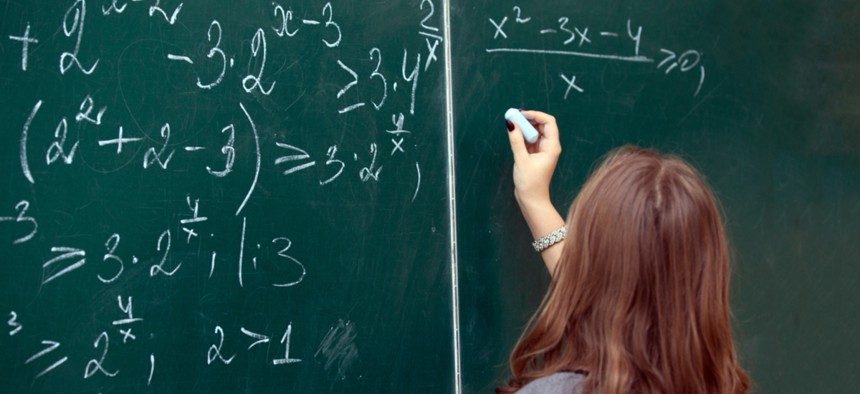US Students Aren’t Bad at Math—They’re Just Not Motivated

Reshetylov Serhii/Shutterstock.com
American students are simply not trying hard enough.
It’s no secret that young Americans perform poorly on math and science tests, especially compared to their peers in countries like Singapore, Korea and China, where math scores are among the highest in the world. Now, a working paper surfaces a fundamental reason for that weak performance: American students are simply not trying hard enough.
In the latest results of the Programme for International Student Assessment (PISA), US students ranked roughly average among the 75 participating countries. The PISA tests, administered by the OECD every three years, assess 15-year-olds around the world on math, science and reading. Governments and policy makers point to the outcomes when making the case for education reform.

The study found, however, that the rankings reflect not only students’ understanding of the subjects, but also whether or not they were motivated to do well on tests.
A team led by researchers from University of Chicago and University of California, San Diego conducted an experiment. They gave students in the US and China 25 math questions from previous tests. The US ranked 36th and China ranked 1st on the 2012 PISA math test. They told a subset of test-takers that they would get cash rewards for each question that they answered correctly. Because PISA tests are taken anonymously–unlike finals or college entrance exams–the students taking the assessments had very little stake in them.
Results showed that American high schoolers who were given cash incentives scored significantly higher than those who didn’t. They were also more likely to get correct answers toward the end of the test. For Chinese students, the incentive didn’t make a significant difference on test scores.
The findings suggest that without external pressure, American students are not as motivated as Chinese students when taking tests. The fact that they increased their efforts in response to incentives, also means that the test scores do not reflect their actual ability.
The researchers also ran a simulation, and found that if the 15-year-olds in the US had been given the same cash bonus in 2012 when taking the assessment, America would have ranked 19th in the PISA math test instead of 36th among 65 nations.
The PISA tests may not be high-stakes for the students who are taking them, but if US policy makers are using the rankings to push through education reform, those 15-year-olds who are phoning it in may inadvertently be influencing the curriculum for graduating classes yet to come.
NEXT STORY: Congress keeps IRS spending on a short leash





